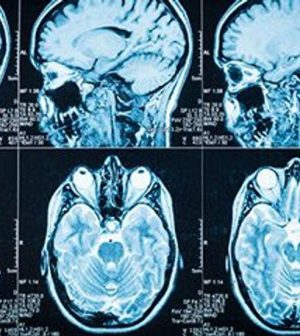- The Best Time of Day to Drink Bone Broth to Maximize Health Benefits
- 8 Ways to Increase Dopamine Naturally
- 7 Best Breads for Maintaining Stable Blood Sugar
- Gelatin vs. Collagen: Which is Best for Skin, Nails, and Joints?
- The Long-Term Effects of Daily Turmeric Supplements on Liver Health
- Could Your Grocery Store Meat Be Causing Recurring UTIs?
- Are You Making This Expensive Thermostat Error This Winter?
- Recognizing the Signs of Hypothyroidism
- 10 Strategies to Overcome Insomnia
- Could Artificial Sweeteners Be Aging the Brain Faster?
New Insights Into How Eating Disorders Alter the Brain

Behaviors associated with eating disorders can make real changes to the brain, new research shows. The findings could help explain why these serious disorders are often chronic — and may also point the way to new treatments.
Eating disorders — such as anorexia nervosa, bulimia and binge-eating disorder — can result in severe complications, including death. Related behaviors include binge-eating, purging and restricting food intake.
“This work is significant because it links biological and behavioral factors that interact to adversely impact eating behaviors,” said Janani Prabhakar, of the translational research division at the National Institute of Mental Health, part of the U.S. National Institutes of Health (NIH).
The study “deepens our knowledge . . . and will give researchers and clinicians better information about how, when, and with whom to intervene,” said Prabhakar, who was not part of the research team.
The researchers, led by Dr. Guido Frank of the University of California, San Diego, discovered that eating disorder behaviors change the brain’s reward response process and food intake control circuitry, which can reinforce these behaviors.
The NIH-supported study included nearly 200 women with different eating disorders and different body mass indexes (BMIs) associated with different eating disorder behaviors. Another 120 women without eating disorders also participated.
The researchers used cross-sectional functional brain imaging scans to assess the women’s brain reward responses during taste reward tasks.
“The study provides a model for how behavioral traits promote eating problems and changes in BMI, and how eating disorder behaviors, anxiety, mood, and brain neurobiology interact to reinforce the vicious cycle of eating disorders, making recovery very difficult,” Frank said in an NIH news release.
Further research is needed to investigate treatments that could target and change reward behaviors in people with eating disorders. That may help them achieve long-term recovery, according to the NIH.
The findings were published online June 30 in JAMA Psychiatry.
More information
The U.S. National Institute of Mental Health has more on eating disorders.
SOURCE: U.S. National Institutes of Health, news release, June 30, 2021
Source: HealthDay
Copyright © 2026 HealthDay. All rights reserved.










